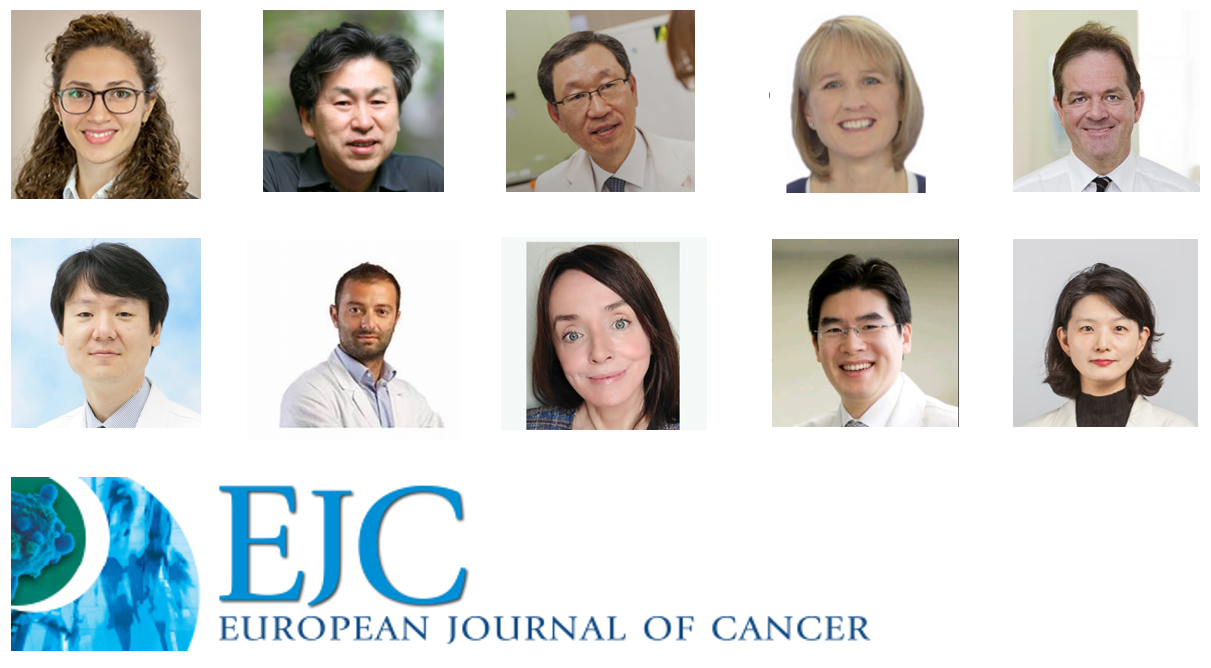The Differential Impact of Sex on Prognosis and Treatment Efficacy in Resectable Gastric Cancer Based on Microsatellite Instability Status
Authors: Alessandra Raimondi, Young Woo Kim, Won Ki Kang, Ruth E. Langley, Yoon Young Choi, Kyoung-Mee Kim, Matthew Guy Nankivell, Giovanni Randon, Myeong-Cherl Kook, Ji Yeong An, Heike I. Grabsch, Michele Prisciandaro, Federico Nichetti, Sung Hoon Noh, Tae Sung Sohn, Sung Kim, Andrew Wotherspoon, Federica Morano, David Cunningham, Jeeyun Lee, Jae-Ho Cheong, Elizabeth Catherine Smyth, Filippo Pietrantonio.
Published in the European Journal of Cancer, on April 9, 2024
Introduction:
Gastric (GC) and gastroesophageal junction cancer (GEJC) are major causes of cancer-related deaths worldwide. The standard of care for locally advanced GC/GEJC is a multimodal treatment strategy including surgery plus peri-operative/adjuvant chemotherapy. Microsatellite instability (MSI) status has emerged as a crucial biomarker, with MSI-high tumors showing better prognosis but potentially lower benefit from chemotherapy. The impact of sex on the outcomes of these patients is an area of growing interest.
Study Design and Population:
- This was a secondary analysis of an international individual patient data (IPD) pooled analysis from four multicenter randomized controlled trials (RCTs) – MAGIC, CLASSIC, ITACA-S, and ARTIST – in patients with resectable gastric cancer (GC).
- The original individual patient data analysis assessed the prognostic role of MSI status and its potential to predict systemic treatment outcomes in resected GC patients.
- For this study, the authors investigated the impact of biological sex (female vs. male) on outcomes of locally advanced GC patients treated with surgery with or without peri-operative/adjuvant chemotherapy, focusing on the MSI-high subgroup.
- Disease-free survival (DFS) and overall survival (OS) were the primary outcome measures, analyzed in the overall population and stratified by sex, MSI status, and treatment received.
- Anonymized patient data included characteristics, treatment, MSI status (MSI-high vs. MSS/MSI-low), and outcomes.
What We Learned:
In the overall population, female patients had numerically longer overall survival (OS) and disease-free survival (DFS) compared to male patients, though the differences were not statistically significant.
When stratified by MSI status:
- In patients with MSI-high tumors, survival outcomes were similar between female and male patients.
- In patients with MSS/MSI-low tumors, female patients had numerically longer OS and DFS compared to male patients.
Regarding treatment efficacy:
-
- In MSI-high patients, there was a numerical trend for a detrimental effect of adding peri-operative/adjuvant chemotherapy to surgery, which was more pronounced in female patients.
- In MSS/MSI-low patients, the significant benefit of peri-operative/adjuvant chemotherapy plus surgery over surgery alone was confirmed irrespective of sex.

Key Highlights:
- Sex appears to influence the prognosis and treatment efficacy in resectable GC/GEJC, particularly in the MSS/MSI-low subgroup.
- Female patients with MSS/MSI-low tumors had numerically improved survival outcomes compared to male patients.
- In MSI-high patients, the potential detrimental effect of adding chemotherapy to surgery was more pronounced in female patients.
Key Takeaway Messages:
- Biological sex appears to influence the prognosis and treatment efficacy in resectable GC/GEJC, particularly in the context of MSI status.
- Further research is needed to elucidate the underlying mechanisms driving the sex-based differences in this setting, as well as the potential implications for optimizing treatment strategies.
- Incorporating sex-specific factors into the design and analysis of future clinical trials in GC/GEJC may help personalize treatment approaches and improve patient outcomes.
- Increased awareness and dedicated research on the topic of sex/gender medicine in oncology is warranted to understand better and address these important clinical considerations.
Summary by Amalya Sargsyan, MD
About OncoDaily
OncoDaily was founded in 2023. It is a US-based oncology media platform, which features the latest news, insights, and patient stories from the world of oncology. Within a short period of time it became one of the leading oncology media platforms globally.
OncoDaily gathers content from various sources, including social media posts from renowned oncologists from all over the world, news from oncology societies and cancer centers, patient and survivor stories, and career-related information for professionals.
The mission of OncoDaily is to empower patients, survivors, and professionals with the knowledge and inspiration they need to fight cancer. The motto of OncoDaily is “Cancer doesn’t take a day off – neither do we”.


